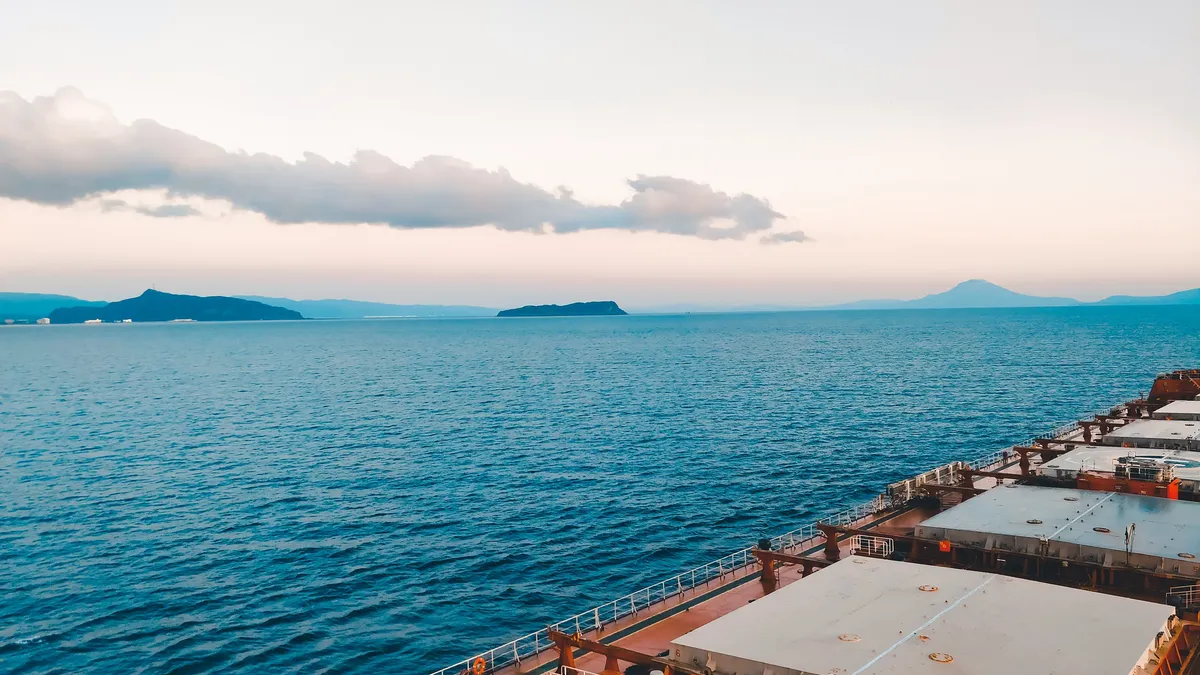Dive Brief:
- Seventeen major shippers from the energy, agriculture, mining and commodity trading industries have joined together to measure and report the carbon emissions that result from their ocean shipping activities, according to a press release from the group entitled The Sea Cargo Charter.
- The group's mission is to establish tools to help shippers determine if their shipping activities are in line with the International Maritime Organization goals for climate change mitigation. The IMO aims to achieve an ocean shipping emissions peak as soon as possible in order to reduce emission by 50% by 2050 from a 2008 baseline.
- Anglo American, ADM, Bunge, Cargill Ocean Transportation, COFCO International, Dow, Equinor, Gunvor Group, Klaveness Combination Carriers, Louis Dreyfus Company, Norden, Occidental, Shell, Torvald Klaveness, Total, Trafigura and Ørsted are founding members, and the group is open to new members.
Dive Insight:
The cargo categories represented by The Sea Cargo Charter's membership — crude oil, coal, iron ore, grain and other bulk commodities — represent 80% of all ocean cargo, according to the release. Given that scope, more detailed climate-related disclosures from the companies could offer the industry valuable data to help factor climate concerns into shipping decisions, which is the charter's stated goal.
"A standard greenhouse gas emissions reporting process will simplify some of the complexities often associated with reporting," Sea Cargo Charter drafting group Chair and Cargill's Business Leader for ocean freight Jan Dieleman said in a statement.
The Sea Cargo Charter also emphasizes transparency through its reporting element to understand the sector's greenhouse gas emissions and conceive solutions for individual companies.
In the last year, ocean shipping stakeholders have demonstrated a realization that collective action is required to make a real impact when it comes to climate change and emissions cessation.
A coalition of 70 ocean shippers, carriers and energy providers formed the Getting to Zero Coalition last month with the goal of bringing zero-emission ships into fleets operating on deep-sea routes by 2030, according to the coalition's announcement.
Groups of prominent shippers and carriers have also joined together committing to forgo the Northern Sea Route due to climate change concerns and to explore the possibilities for more sustainable fuels.
New technologies to reach carbon-neutral shipping can help the industry reduce its total emissions if they are adopted at scale. But The Sea Cargo Charter effort acknowledges that everyday operations can also be optimized for emissions reduction.













